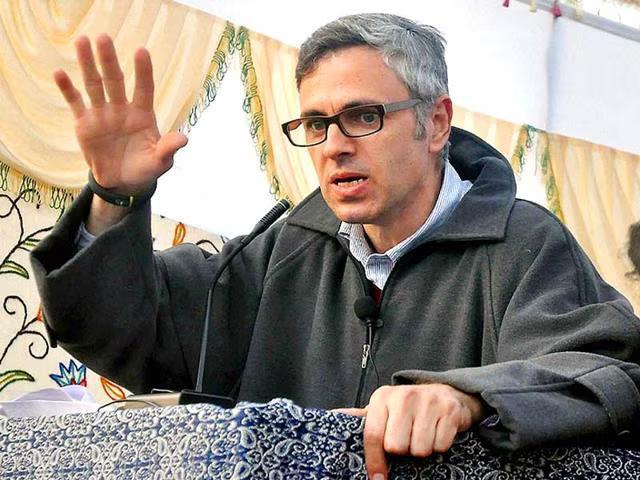
US Doesn’t Care About Any Other Country: J&K CM Omar After Trump-Pak Army Chief Lunch
The recent luncheon hosted by US President Donald Trump for Pakistan army chief Asim Munir has sparked a heated debate globally. While some have hailed the move as a significant step towards improving ties between the two nations, others have criticized it as a snub to India’s concerns over Pakistan’s alleged support to terrorism. Among those who have voiced their concerns is Jammu and Kashmir (J&K) Chief Minister Omar Abdullah, who has sharply reacted to the development.
In an interview, Omar Abdullah, a member of the National Conference, said that the US President’s decision to host the Pakistan army chief for lunch reflects the country’s lack of regard for others. “We can’t dictate to the US President whom he should invite for dinner…We used to think the US President was our close friend, and he’d respect that, but the US does what benefits them, they don’t care about any other country,” he stated.
Abdullah’s response comes at a time when India has been struggling to address the issue of cross-border terrorism emanating from Pakistan. The country has repeatedly urged the international community to take concrete steps to curb the activities of terrorist organizations operating from Pakistani soil. However, the recent luncheon has raised questions over the US’s commitment to combating terrorism.
The meeting between Trump and Munir has been seen as a significant development in the context of the ongoing tensions between India and Pakistan. The two nations have been engaged in a bitter standoff over the past few years, with both sides accusing each other of violating ceasefire agreements along the Line of Control (LoC).
India has been particularly critical of Pakistan’s role in supporting terrorist organizations such as Lashkar-e-Taiba (LeT) and Jaish-e-Mohammed (JeM), which have been responsible for several terrorist attacks on Indian soil. The country has also been seeking international support to pressure Pakistan into taking action against these groups.
However, the recent luncheon has raised concerns that the US may not be willing to take a tough stance on Pakistan’s role in terrorism. The meeting has been seen as a snub to India’s concerns, and has raised questions over the US’s commitment to combating terrorism.
In this context, Omar Abdullah’s response is particularly significant. As the Chief Minister of Jammu and Kashmir, he has a deep understanding of the issues facing the state, including the threat posed by cross-border terrorism. His comments reflect the frustration and disappointment felt by many Indians over the US’s lack of action on the issue.
Abdullah’s remarks are also a reflection of the changing dynamics of the global landscape. The rise of China as a major power has led to a shift in the global balance of power, with many countries seeking to strengthen their ties with Beijing. The US, in turn, is seeking to maintain its influence in the region by strengthening its ties with countries such as Pakistan.
In this context, the meeting between Trump and Munir can be seen as a move to strengthen US-Pakistan ties. The two nations have been cooperating on several fronts, including counter-terrorism and security issues. The meeting has been seen as a significant development in this context, and has raised hopes of improved ties between the two nations.
However, Abdullah’s response highlights the concerns over the US’s commitment to combating terrorism. The country’s decision to host the Pakistan army chief for lunch has raised questions over its willingness to take a tough stance on terrorism. The meeting has also raised concerns over the US’s commitment to supporting India’s efforts to combat terrorism.
In conclusion, the meeting between Trump and Munir has sparked a heated debate globally. While some have hailed the move as a significant step towards improving ties between the two nations, others have criticized it as a snub to India’s concerns over Pakistan’s alleged support to terrorism. Omar Abdullah’s response reflects the frustration and disappointment felt by many Indians over the US’s lack of action on the issue. The meeting has raised questions over the US’s commitment to combating terrorism, and has highlighted the need for the country to take a tough stance on the issue.
Source:






